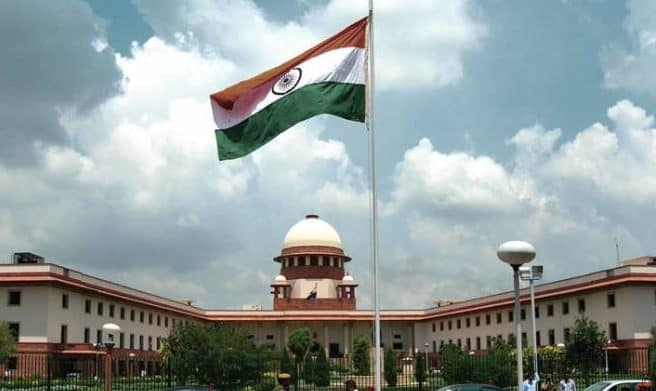New Delhi : The Supreme Court on Thursday asked whether anyone can raise the issue of deaths along the border and seek votes for a particular party.The question was among several raised during a day-long hearing to revisit its two-decade-old ‘Hindutva’ judgement.
Referring to the terms “national symbols” and “national emblem” in section 123(3) of the Representation of the People (RP) Act, a seven-judge Constitution bench headed by Chief Justice TS Thakur said nobody can be allowed to use them to garner votes in the elections.
“Anybody can seek votes on the ground of national flag and national emblem and say that people are dying on the borders and so vote for a particular party. Can it be permitted,” asked the bench.
“This is specifically proscribed under this provision,” senior advocate Shyam Divan said.
The hearing also saw the bench observing that Parliament has consciously “widened” the scope of the term “corrupt practices” in the poll law to curb “separatist and communal” tendencies.
“What is most significant in the present clause (of the RP Act) is that Parliament thought to widening the scope of ‘corrupt practices’ to curb separatist and communal tendencies during elections,” the bench, which also comprised justices Madan B Lokur, SA Bobde, A K Goel, UU Lalit, DY Chandrachud and L Nageswara Rao, said.
The bench then raised a hypothetical question and asked if a ‘Sikh granthi’ seeks votes for a particular Hindu candidate, can it be said that this appeal “falls foul” of the provision in question.
It may not amount to “corrupt practice” under the specific section of the RP Act, Divan responded.
He also said that the term “his religion”, used in the provision, means religion of the candidate and not that of the spiritual leader or cleric who seek votes.
The court is examining the “scope and width” of section 123(3) of the RP Act which deals with electoral malpractices amounting to “corrupt practices”, among other things.
Meanwhile, three social activists—Teesta Setalvad, Shamsul Islam and Dilip Mandal—filed an application to intervene in the ongoing hearing to seek “de-linking of religion from politics”.
PTI

